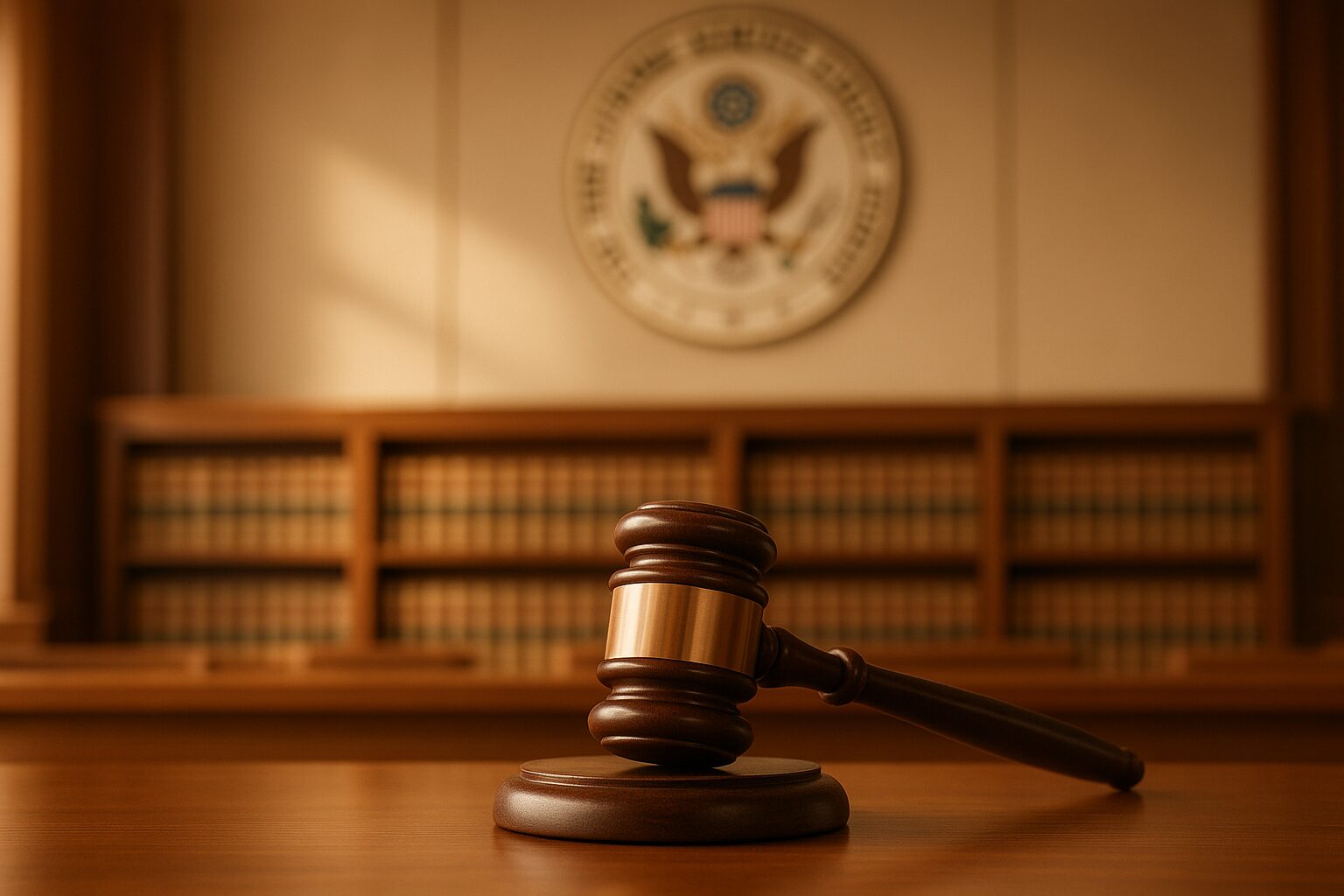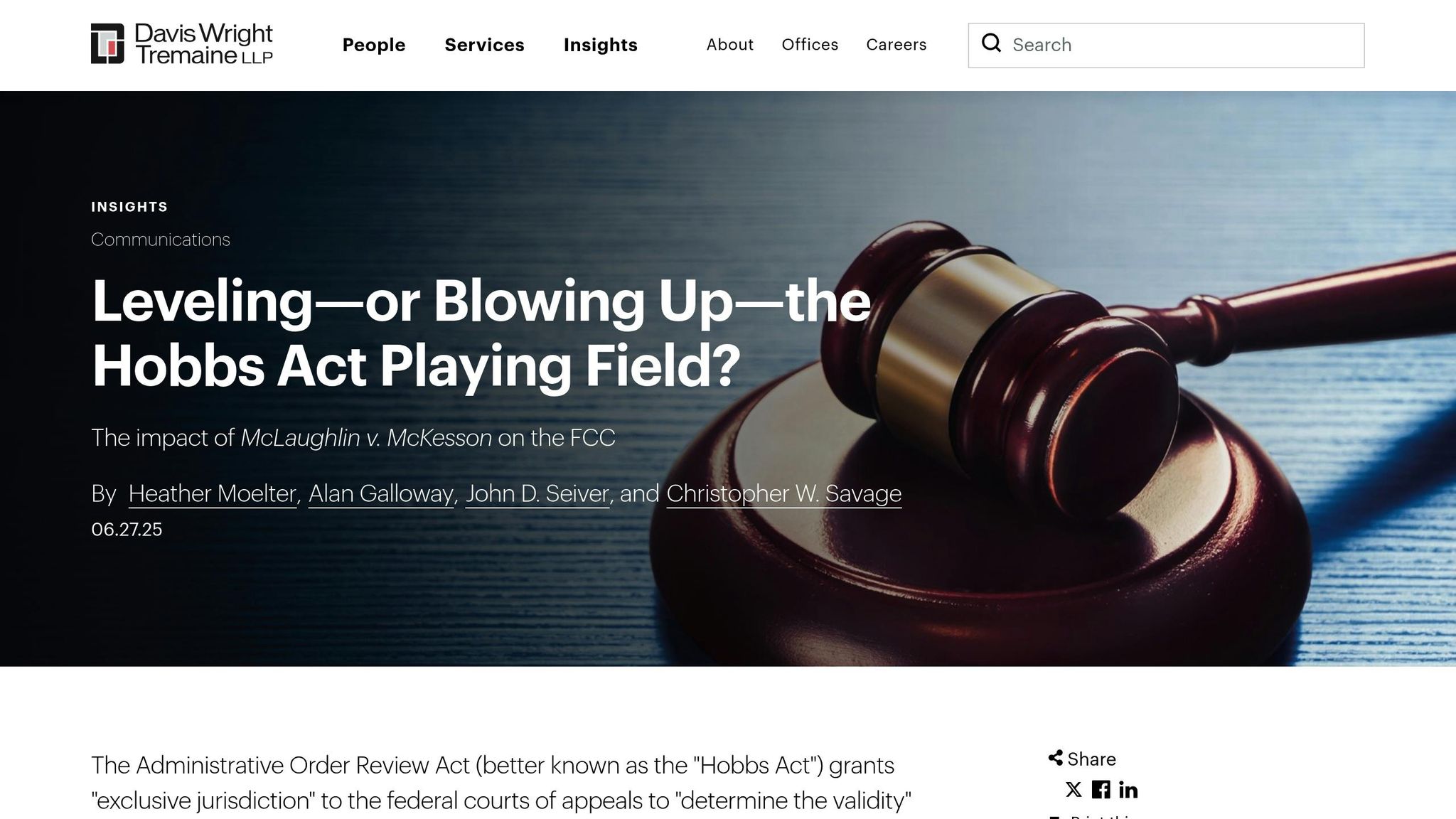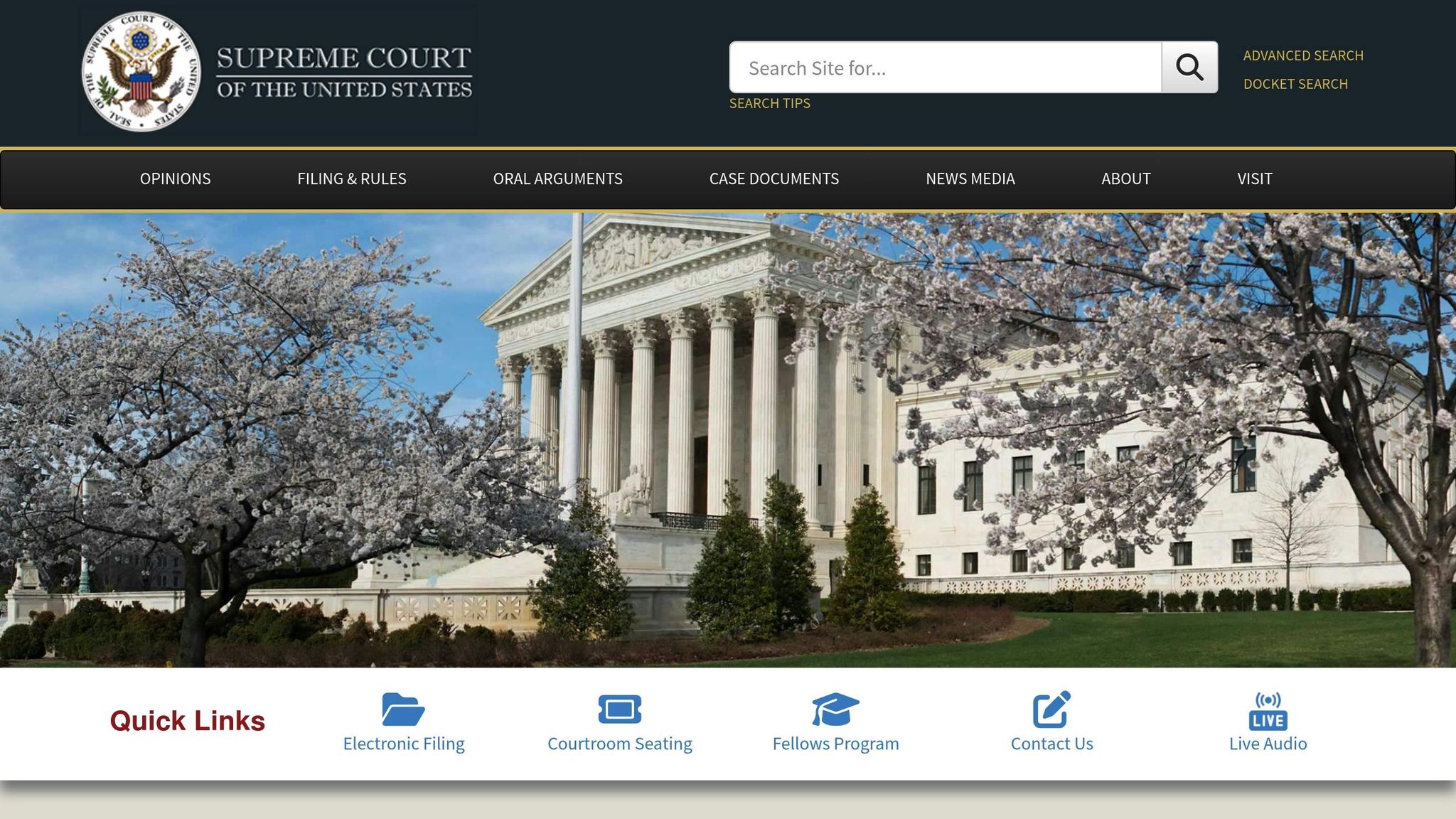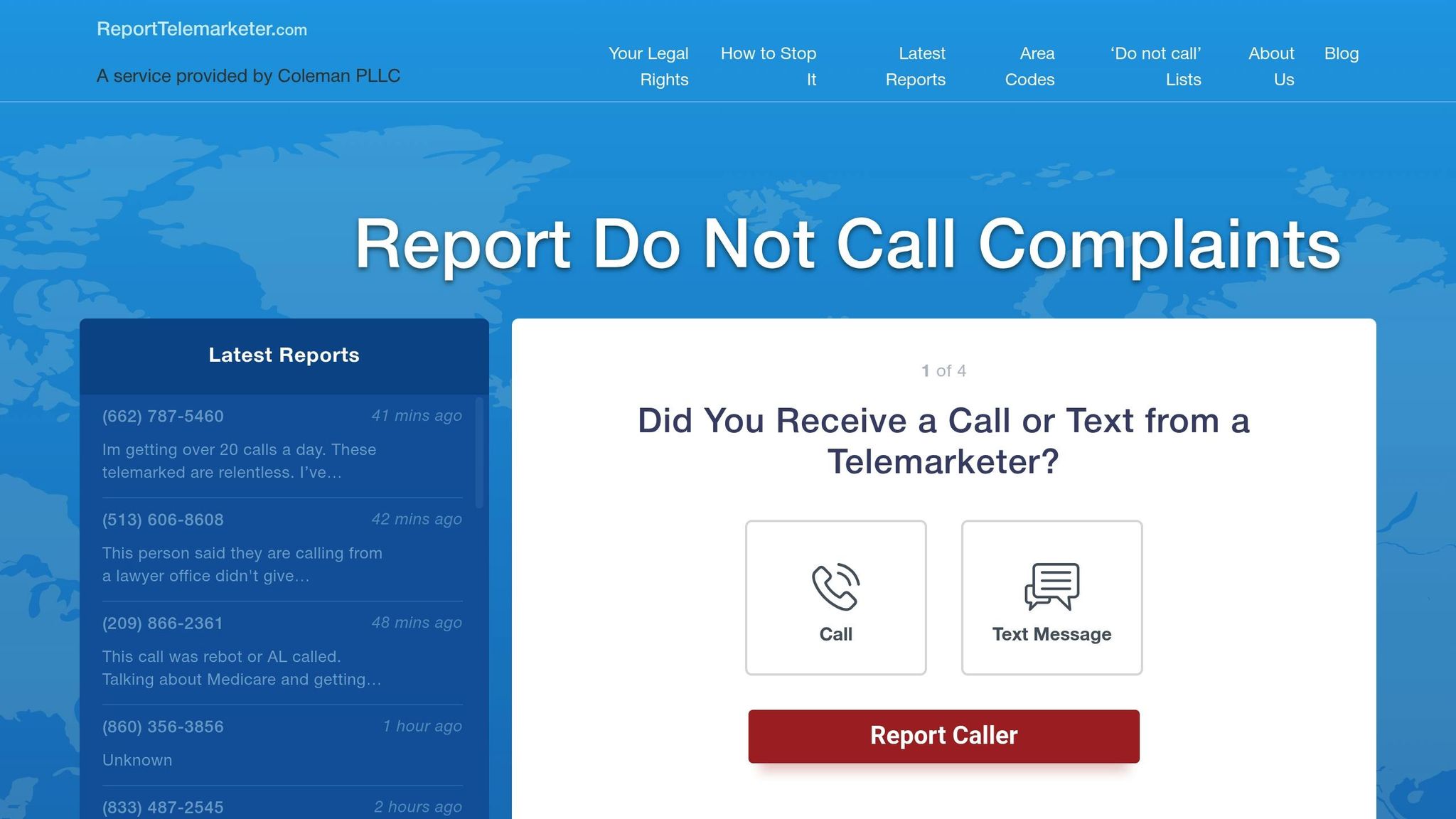
The recent Supreme Court decision in McLaughlin Chiropractic Associates, Inc. v. McKesson Corp. has changed how courts interpret the Telephone Consumer Protection Act (TCPA). For decades, courts deferred to the FCC’s interpretations of the TCPA, but now district courts can independently evaluate the law. This shift impacts businesses and consumers alike:
- Businesses: Must reassess telemarketing practices as prior FCC guidance is no longer binding. Compliance has become less predictable, increasing the risk of lawsuits.
- Consumers: Gain more opportunities to challenge unwanted calls and texts, as courts may adopt broader interpretations of TCPA protections.
Key points:
- The FCC’s role in TCPA enforcement has diminished; district courts now have greater authority.
- Businesses face new compliance challenges due to inconsistent court rulings.
- Consumers can use tools like ReportTelemarketer.com to document violations and take action.
This ruling reflects a broader trend of limiting agency power and increasing judicial oversight, creating a more uncertain legal environment for telemarketing compliance.
BREAKING SCOTUS McKesson Ruling Changes Everything About the TCPA! Hobbs Act Dead. Queenie explains!

The Legal Foundation of TCPA Compliance
TCPA enforcement has undergone a major shift, moving from a system dominated by the FCC to one shaped by judicial oversight. Before the Supreme Court’s June 20, 2025 decision in McLaughlin, the Federal Communications Commission (FCC) held the reins, and its interpretations of the law were treated as gospel by district courts. This approach left little room for independent judicial analysis, but the Court’s decision changed that dynamic, giving district courts the authority to interpret the law on their own.
How the FCC and Hobbs Act Shaped TCPA Enforcement
For years, the FCC issued rules and interpretations that businesses relied on to understand their TCPA obligations. These rules weren’t just guidelines – they were binding. The Hobbs Act, formally known as the Administrative Orders Review Act, reinforced this system by limiting judicial review of FCC orders. Once the 60-day window for appellate review closed, district courts were essentially locked into following FCC guidance.
"Prior to the Court’s decision, seven federal circuits had held that the Hobbs Act rendered rules and orders by the Federal Communications Commission (FCC) unreviewable at the district court level or even at the circuit court level after sixty days."
This meant businesses could depend on FCC interpretations without worrying about district courts overturning them. For instance, in July 2003, the FCC ruled that cell phones could be considered "residential" telephones under the TCPA and that text messages were included in the statute’s definition of "calls". Even though some questioned whether this interpretation aligned with the law’s text, courts consistently upheld the FCC’s stance.
Challenges in TCPA Litigation Before 2025
While the FCC’s control provided clarity, it also created serious headaches for businesses. Companies had no real way to challenge FCC interpretations, even if they believed the agency had overstepped its authority.
"Courts deemed district courts bound by FCC interpretations in subsequent enforcement actions, preventing businesses from challenging the FCC’s reading of the law when sued for alleged TCPA violations."
This issue became glaringly apparent in cases like the 2019 Amerifactors Financial Group ruling. Here, the FCC decided that "telephone facsimile machine" under the TCPA didn’t include online fax services, effectively derailing a previously certified class action that hadn’t distinguished between traditional and online faxes. When businesses tried to challenge this interpretation in the McLaughlin case, both the district court and the Ninth Circuit refused to hear their arguments, citing the Hobbs Act.
The FCC also set strict rules around "prior express consent" that many businesses found difficult to navigate. In 1992, the agency declared that individuals who knowingly provided their phone numbers had effectively consented to be contacted unless they explicitly stated otherwise. This position was reaffirmed in 2008 for debt collection purposes. These consent rules became a cornerstone of TCPA compliance programs, but debates persisted over whether they accurately reflected the intent of Congress.
"Before McLaughlin, courts understood a 1950 law called the ‘Administrative Order Review Act,’ or more commonly the ‘Hobbs Act,’ to require them to defer to the FCC’s interpretations of the TCPA in civil cases."
This enforcement system left businesses in a tough spot. Even when they meticulously followed FCC guidance, they could still face lawsuits under the TCPA, with little ability to challenge the agency’s interpretations in court. While the framework ensured consistency, it also raised concerns about limiting judicial review and undermining the separation of powers. These challenges highlight the significance of the Supreme Court’s recent decisions, which have redefined the legal landscape for TCPA compliance.
Supreme Court Rulings and Their Impact on TCPA Enforcement

The Supreme Court’s June 20, 2025, decision in McLaughlin Chiropractic Associates, Inc. v. McKesson Corp. has brought a seismic shift to how courts approach cases under the Telephone Consumer Protection Act (TCPA). In a 6–3 decision, the Court overturned decades of established practice, reshaping both the legal landscape and compliance strategies for businesses operating under the TCPA.
District Courts Gain Independence in Interpreting the TCPA
One of the most striking changes from the ruling is the newfound authority granted to district courts to interpret the TCPA independently.
"In civil enforcement proceedings under the [TCPA], are district courts bound by the [FCC’s] interpretation of the Act? The answer is no."
- U.S. Supreme Court
This means district courts are no longer required to defer to the Federal Communications Commission’s (FCC) interpretations of the TCPA. Instead, they must evaluate the agency’s interpretation on their own, applying ordinary principles of statutory interpretation while still considering the agency’s views with appropriate respect.
Previously, under the Hobbs Act, courts were bound by FCC orders, leaving little room for independent judicial analysis. The Supreme Court’s decision rejects this approach, empowering district courts to take a fresh look at the TCPA’s provisions.
The McLaughlin case itself illustrates the practical impact of this shift. Initially, the district court had ruled in favor of McKesson, granting summary judgment and decertifying a class of fax recipients based on a 2019 FCC interpretation that excluded online fax services from the definition of a "telephone facsimile machine." However, under the new framework, McLaughlin can now challenge the FCC’s interpretation, potentially leading to the re-certification of the class to include online fax recipients.
This decision builds on the Court’s 2024 ruling in Loper Bright Enterprises v. Raimondo, which dismantled the Chevron deference doctrine. With Chevron deference no longer in play, agencies like the FCC no longer enjoy automatic judicial deference unless Congress explicitly grants it.
Implications for Legal Review and Business Compliance
The McLaughlin ruling opens the door for district courts to revisit and potentially overturn established FCC positions on key TCPA issues. This could lead to challenges to various FCC interpretations, including those related to automated dialing systems, consent requirements, revocation procedures, and exemptions for business-to-business communications and fax transmissions. Longstanding TCPA precedents are now subject to greater scrutiny.
The ripple effects of this decision are already being felt. Following the McLaughlin ruling, and in light of the Eleventh Circuit’s January 2025 decision to vacate the FCC’s One-to-One Consent Rule, the FCC moved quickly. On July 14, 2025, the agency eliminated several rules it deemed overly burdensome, including the One-to-One Consent Rule, as part of FCC Chair Brendan Carr’s "Delete, Delete, Delete" initiative.
For businesses, this evolving legal landscape demands a proactive approach. Companies that previously relied on FCC interpretations as a shield for compliance must now reassess their policies. Adopting more cautious compliance strategies and staying alert to changes in FCC guidance and judicial rulings will be critical.
The McLaughlin decision not only marks a turning point in telemarketing law but also reflects a broader trend in the Supreme Court’s jurisprudence – shifting power away from administrative agencies and placing greater emphasis on judicial interpretation of statutes. This change underscores the importance of staying prepared for a dynamic and unpredictable legal environment.
What This Means for Businesses and Consumers
The Supreme Court’s shift in judicial review under McLaughlin has reshaped the TCPA compliance landscape. By giving district courts more room to interpret the law independently, the result has been greater legal uncertainty for businesses and new opportunities for consumers to assert their rights.
New Compliance Challenges and Opportunities for Businesses
For businesses, navigating TCPA compliance has become more complicated. Since the McLaughlin decision, federal district courts have issued varying – and sometimes conflicting – rulings on critical questions, such as whether a text message counts as a "call" under the TCPA. This uncertainty has contributed to a noticeable rise in TCPA class action lawsuits over the past year, and experts predict this trend may continue as plaintiffs push courts to explore new legal theories and revisit established boundaries.
One area of concern is the stricter enforcement of timing restrictions. Calls made outside acceptable local hours now face closer scrutiny, increasing the risk of lawsuits. Similarly, the rise in Do Not Call litigation could lead to tighter rules around consent and revocation practices. While these developments pose challenges for businesses, they also enhance protections for consumers.
To navigate this evolving legal environment, businesses should take proactive steps to minimize risk. This includes maintaining clear documentation of consent, implementing strong opt-out mechanisms, and keeping detailed records of communications. These measures can help businesses stay compliant and reduce exposure to potential lawsuits.
How Consumers Can Protect Their Rights Under the New Rules
On the flip side, consumers are seeing their rights expand. With judges no longer bound by traditional FCC interpretations, courts may adopt broader readings of TCPA protections. Key rights, such as the ability to revoke consent, remain firmly in place. For instance, replying "STOP" to marketing texts is a simple way for consumers to opt out of further messages, and businesses are legally obligated to honor such requests within a reasonable timeframe.
The uptick in TCPA litigation also provides consumers with more opportunities to hold violators accountable. To strengthen their case, consumers should document unwanted communications, noting details like call times and any attempts to revoke consent.
For repeated violations, consumers can turn to resources like ReportTelemarketer.com. This platform helps individuals report unwanted calls and texts, investigate potential violations, and take legal action to stop the harassment. Importantly, it offers free consumer protection by recovering attorney fees directly from telemarketers when applicable.
As courts begin interpreting TCPA provisions more broadly, consumers are encouraged to stay informed about their rights and take active steps to safeguard their privacy. Documenting violations and seeking professional support can go a long way in ensuring their protection.
sbb-itb-a8d93e1
Consumer Protection Services and TCPA Enforcement
Following the McLaughlin decision, district courts have begun interpreting the Telephone Consumer Protection Act (TCPA) independently, creating a landscape where consumers need effective tools to combat relentless telemarketing. This growing demand has made platforms like ReportTelemarketer.com an essential resource.
How ReportTelemarketer.com Supports Consumers

ReportTelemarketer.com is designed to help individuals put an end to telemarketing harassment. To date, the platform has assisted over 30,000 people in dealing with unwanted calls and messages. As Stefan Coleman, the platform’s founder, explains:
"As a consumer protection firm, we use the telephone consumer protection laws to stop telemarketers from harassing consumers."
Here’s how it works: Consumers can report unwanted calls through a straightforward online form. Once a report is submitted, the team investigates the telemarketer using specialized tools. If they confirm a TCPA violation, they take action, which may include sending cease-and-desist letters or filing formal complaints. Consumers may even be entitled to statutory damages of $500 per call.
What makes this service even more appealing is its no-cost structure, ensuring that anyone can access it without financial barriers.
Free Consumer Protection Tools and Their Advantages
One of the standout features of ReportTelemarketer.com is its entirely free service model. The platform operates on a straightforward principle:
"Our Service Is Free."
This is possible because the law firm recovers attorney fees directly from the telemarketers once the calls are stopped. This means consumers don’t have to spend a dime out of pocket to fight back against harassment.
In the complex legal environment following McLaughlin, where interpretations of telemarketing laws vary by court, services like these are invaluable. They handle the legal complexities, allowing consumers to focus on documenting violations. The platform’s commitment is captured in its tagline:
"We Stop the Calls For You."
Additionally, ReportTelemarketer.com plays an educational role, helping consumers understand their rights under the TCPA. As legal interpretations continue to shift, this knowledge becomes increasingly important for those seeking to protect themselves.
For anyone dealing with persistent telemarketing harassment, the combination of expert legal support and easy-to-use reporting tools offers a practical and risk-free solution. This approach not only discourages telemarketers from violating the TCPA but also empowers individuals to stand up for their rights without worrying about financial burdens. In today’s evolving legal landscape, these services are more important than ever.
Moving Forward with TCPA Changes
The Supreme Court’s decision in McLaughlin Chiropractic Associates, Inc. v. McKesson Corp. on June 20, 2025, has reshaped the compliance landscape for telemarketing. This ruling has prompted businesses to reassess their approaches to ensure they align with the updated interpretation of the Telephone Consumer Protection Act (TCPA).
One of the most significant outcomes of this decision is the shift in how courts handle agency guidance. Decades of Federal Communications Commission (FCC) interpretations are no longer binding. Instead, district courts are now tasked with independently interpreting the law. As the Supreme Court explained:
"In an enforcement proceeding, a district court must independently determine for itself whether the agency’s interpretation of a statute is correct. District courts are not bound by the agency’s interpretation, but instead must determine the meaning of the law under ordinary principles of statutory interpretation, affording appropriate respect to the agency’s interpretation."
This change has created new challenges for businesses. Legal experts are urging companies to review their telemarketing practices based on the precise language of the TCPA rather than relying on past FCC guidance.
The ripple effects of judicial independence are already evident. For instance, in Jones v. Blackstone Med. Servs., LLC (July 2025), a federal court dismissed Do-Not-Call claims related to text messages. The court determined that the term "telephone call", as defined in the original 1991 statute, does not extend to text messages. The ruling emphasized:
"It is not for a court to legislate by reading into the TCPA something that is not there. … It is for Congress to respond to the issues presented in this case and to address the realities of today’s technology (and the intrusions caused therefrom) which is commonplace in American life in 2025. The Court confines itself to its assigned role which does not include legislating."
For consumers, this evolving legal environment offers both challenges and opportunities. While courts are adopting varying interpretations of telemarketing laws, tools like ReportTelemarketer.com have become increasingly valuable. This platform helps users navigate telemarketing violations by assisting with filing cease-and-desist letters, formal complaints, and providing free TCPA-related support.
As local courts continue to interpret TCPA provisions differently, staying informed is more important than ever. Until appellate courts establish clearer guidelines, both businesses and consumers must remain vigilant and up to date on how these changes unfold.
FAQs
How does the Supreme Court’s ruling in McLaughlin Chiropractic Associates v. McKesson affect TCPA compliance for businesses?
The Supreme Court’s Decision in McLaughlin Chiropractic Associates v. McKesson
The Supreme Court’s ruling in McLaughlin Chiropractic Associates v. McKesson changes the game for how businesses handle compliance with the Telephone Consumer Protection Act (TCPA). By granting courts greater authority to review and reinterpret TCPA regulations, the decision reduces the weight traditionally given to FCC interpretations.
For businesses, this means FCC guidance can no longer be seen as the definitive answer on compliance. Instead, companies will need to collaborate closely with legal experts to navigate any uncertainties in the law. This ruling could lead to a more challenging compliance environment and an increased risk of litigation.
What does it mean for consumers now that courts can interpret the TCPA without relying on the FCC?
The Supreme Court’s latest rulings have made it clear: district courts are no longer required to follow the FCC’s interpretations of the Telephone Consumer Protection Act (TCPA). This shift allows courts to take a more independent approach when interpreting and applying the law.
For consumers, this could translate into tougher rulings against telemarketers, which might result in better safeguards against those annoying, unsolicited calls and texts. It also raises the stakes for businesses violating the TCPA, increasing the chances of legal repercussions and giving consumers a stronger line of defense against telemarketing practices.
What steps can consumers take to document and challenge unwanted telemarketing calls or texts under the updated TCPA rules?
How to Handle Unwanted Telemarketing Calls or Texts
Dealing with annoying telemarketing calls or texts? Start by keeping a detailed log of every interaction. Write down the date, time, phone number, and any specifics about the caller or the message. This kind of documentation can be a powerful tool if you decide to challenge any violations later on.
You can also report incidents directly to the Federal Communications Commission (FCC). With updated TCPA guidelines giving courts more authority to scrutinize telemarketing practices, having solid records is more important than ever. These steps not only help safeguard your rights but also ensure telemarketers are held accountable for their actions.